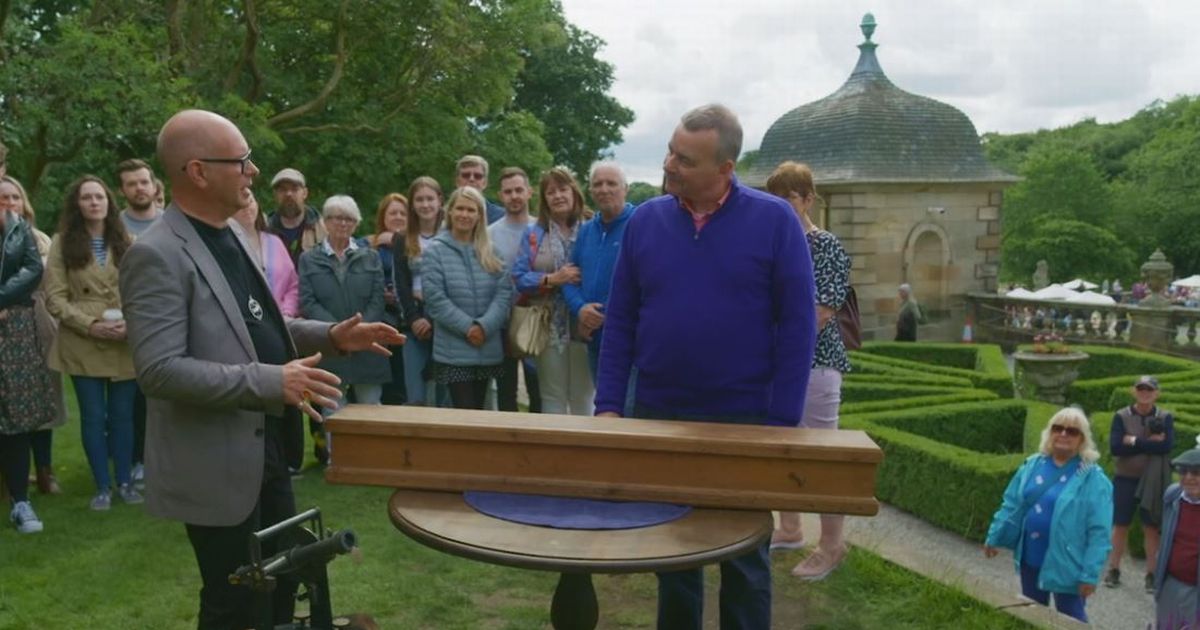With strong ties to Liverpool, the items now call our city home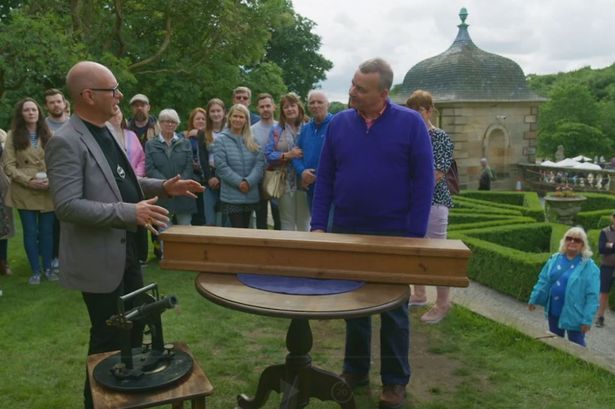 Items belonging to William Lassell were valued on BBC’S Antiques Roadshow in 2024(Image: BBC/Antiques Roadshow/Screengrab)
Items belonging to William Lassell were valued on BBC’S Antiques Roadshow in 2024(Image: BBC/Antiques Roadshow/Screengrab)
Family-inherited items which were valued on BBC’s Antiques Roadshow for a staggering sum can now be found in Liverpool. Our city has long been home to many successful academics and creatives, but the work of one, William Lassell, is now being brought back into the spotlight.
A highly skilled astronomical observer, telescope maker and builder, as well as a brewer of beer, Lassell is described as one of the first “Grand Amateurs” of the Victorian age. Lassell spent much of his working and creative life in Liverpool, the city where many of his great astronomical discoveries were made and where his important contribution to the development of the reflecting telescope took place.
Last year, two of Lassell’s telescopes also appeared on Antiques Roadshow and wowed experts. But now, the significant pieces call Liverpool home centuries on from when they were created.
READ MORE: Fight to save historic Merseyside steamship that is last of its kindREAD MORE: Lost chippy delicacies from childhood that you ‘don’t see’ in Liverpool anymore
One descendent of Lassell is Dr Tim Blaxter, 67, originally from Aberdeen. He told the ECHO about Lassell’s fascinating story and how his work went from Antiques Roadshow to Liverpool were his ancestor spent much of his life.
Dr Blaxter said: “William Lassell is my grandmother’s great-grandfather. The connection was kind of mentioned occasionally growing up, but we always had this telescope and we used to try and use it.
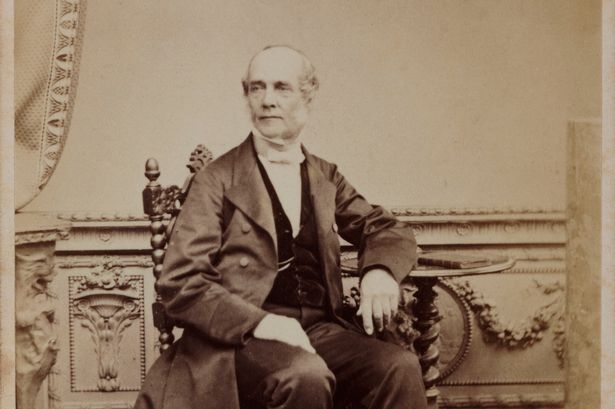 Carte de visite photograph by Maull & Co, of William Lassell (Image: Photo by SSPL/Getty Images)
Carte de visite photograph by Maull & Co, of William Lassell (Image: Photo by SSPL/Getty Images)
“It wasn’t designed as a terrestrial telescope, it was designed as a solar, to observe a solar eclipse. So it means that the lenses are all kind of strongly coloured to cut down the light, so it never worked as a telescope – but it was always there in the house, always hanging there.
“Lassell’s father was an instrument maker, so a skilled worker rather than anything else. I think Lassell started out as an apprentice doing the same thing, but he ended up making a huge amount of money from brewing.
“He owned breweries in Liverpool. I have no idea how he got from one to the other, but he ended up being really substantially wealthy.
READ MORE: Lost Liverpool nightclubs with the ‘stickiest floors’ people still rememberREAD MORE: Grandad’s work will ‘still be in Liverpool in a thousand years’
“He built these enormous telescopes, one of them in Liverpool, which was getting to be full of smoke in the sort of 1740s, 1750s. He had this extraordinary career going from being an apprentice to an instrument maker to owning these enormous telescopes.”
Lassell is celebrated for his pioneering discoveries, including the discovery of Neptune’s largest moon, Triton, and his contributions to the study of the outer planets. But once discovery could have worked out completely different.
Dr Blaxter said: “All the astronomers, amateur, professional, around the world, knew that there was another planet out there somewhere, because they can work it out from the mathematics of the movement of the other planets. They knew there was something out there and everybody was looking for it.
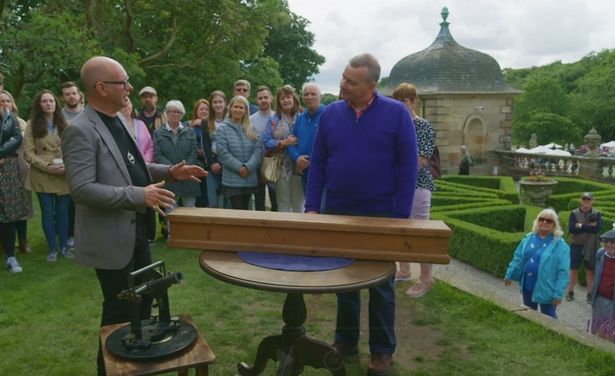 William Lassell’s telescopes were valued on BBC’S Antiques Roadshow in January 2024(Image: BBC/Antiques Roadshow/Screengrab)
William Lassell’s telescopes were valued on BBC’S Antiques Roadshow in January 2024(Image: BBC/Antiques Roadshow/Screengrab)
“And Lassell, like everybody else, was trying to find the planet Neptune, but he sprained his ankle observing one night, so he couldn’t observe for a few nights. And it was during those few nights that the planet Neptune was discovered.
“So if it hadn’t been for him spraining his ankle, it’s quite likely he would have discovered Neptune because he had a very powerful telescope and he was observing that area of the sky. So instead of discovering Triton a few days later, one of the moons in Neptune, he might have discovered Neptune itself.”
In January 2024, two of Lassell’s telescopes were taken to the experts on BBC’s Antiques Roadshow. During the episode, which was filmed in Pollok Country Park, Glasgow, viewers learnt the astonishing value of the items.
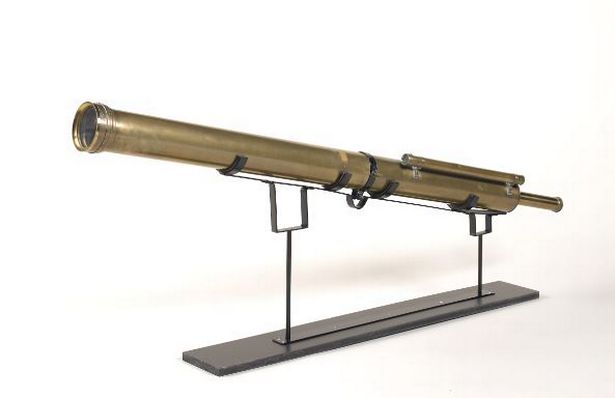 The refracting telescope, owned and used by William Lassell(Image: World Museum Liverpool)
The refracting telescope, owned and used by William Lassell(Image: World Museum Liverpool)
At the time, the expert said: “The mere fact that these belonged to such a famous astronomer, and, let’s face it, he’s got so many letters after his name. He wrote so many papers and of course, he was very big in the Royal Astronomical Society as well.
“I think your items here are worth £20,000.” He added: “It builds up into this beautiful story about a brewer who made incredible discoveries. He made a place for himself in astronomical history.”
Dr Blaxter said he believed the telescope would be worth just a fraction of the price it was valued at. He said: “It turns out that the telescope had been specially made to take to Santander in Spain to observe a solar eclipse.
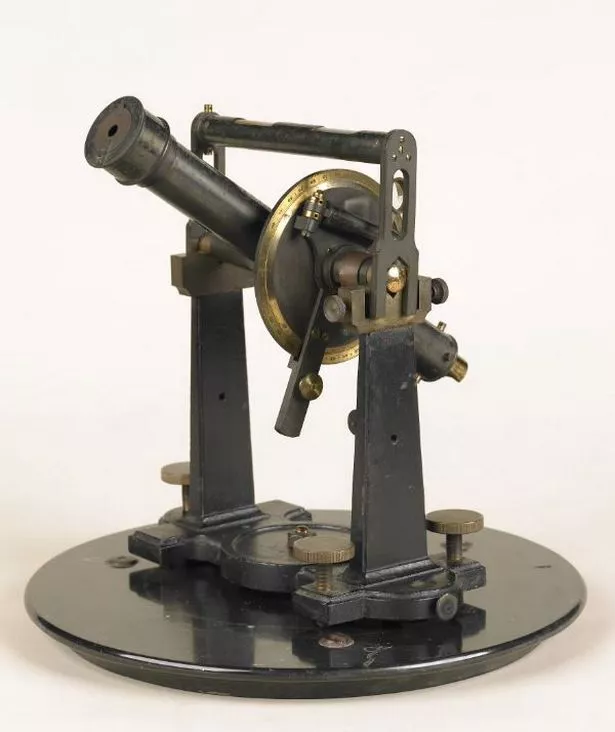 The transit telescope, owned and used by William Lassell(Image: World Museum Liverpool)
The transit telescope, owned and used by William Lassell(Image: World Museum Liverpool)
“My father thought that it was just an observational telescope for looking at the stars. But it never worked properly, you could never get it to work.
“It wasn’t until Antiques Roadshow when they looked at the different objectives, all the different colours and said this is a solar telescope and that kind of piqued my interest. We only took the telescope as a second item.
“The main thing we had taken was the transit instrument, which is like a small telescope. That I thought they’d be most interested in, but actually they were most interested in the solar telescope and the whole story about the discovery.
“They reckon it was worth £20,000. I just about fell off my seat because Lassell would have been surprised by that, because it was just a tool for him.”
World Museum Liverpool have since acquired the two significant pieces that once belonged to the renowned 19th-century astronomer, which were examined and featured on Antiques Roadshow. Both preserved examples of his fundamental contributions to Liverpool’s rich scientific history, the refracting and transit telescope have been in William Lassell’s family for generations and have been kindly donated by living relatives of Lassell for display.
The refracting telescope is believed to have been used by Lassell on a trip to Spain to observe a solar eclipse in July 1860. Assistant Curator of Science and Antiquities Emma Gill told the ECHO: “We’ve been incredibly lucky to receive two really fascinating pieces with such a strong provenance from Tim and Lassell’s descendants.
“Lassell, he was the grand amateur of Victorian astronomy. His life was so fascinating and so unique because he had this business in brewing, but his passion for astronomy saw him make all these incredible discoveries and with those two pieces that we received.
“It’s just two pieces of how rich our Liverpool scientific history is.” To find out more about the life of William Lassell, click here.
